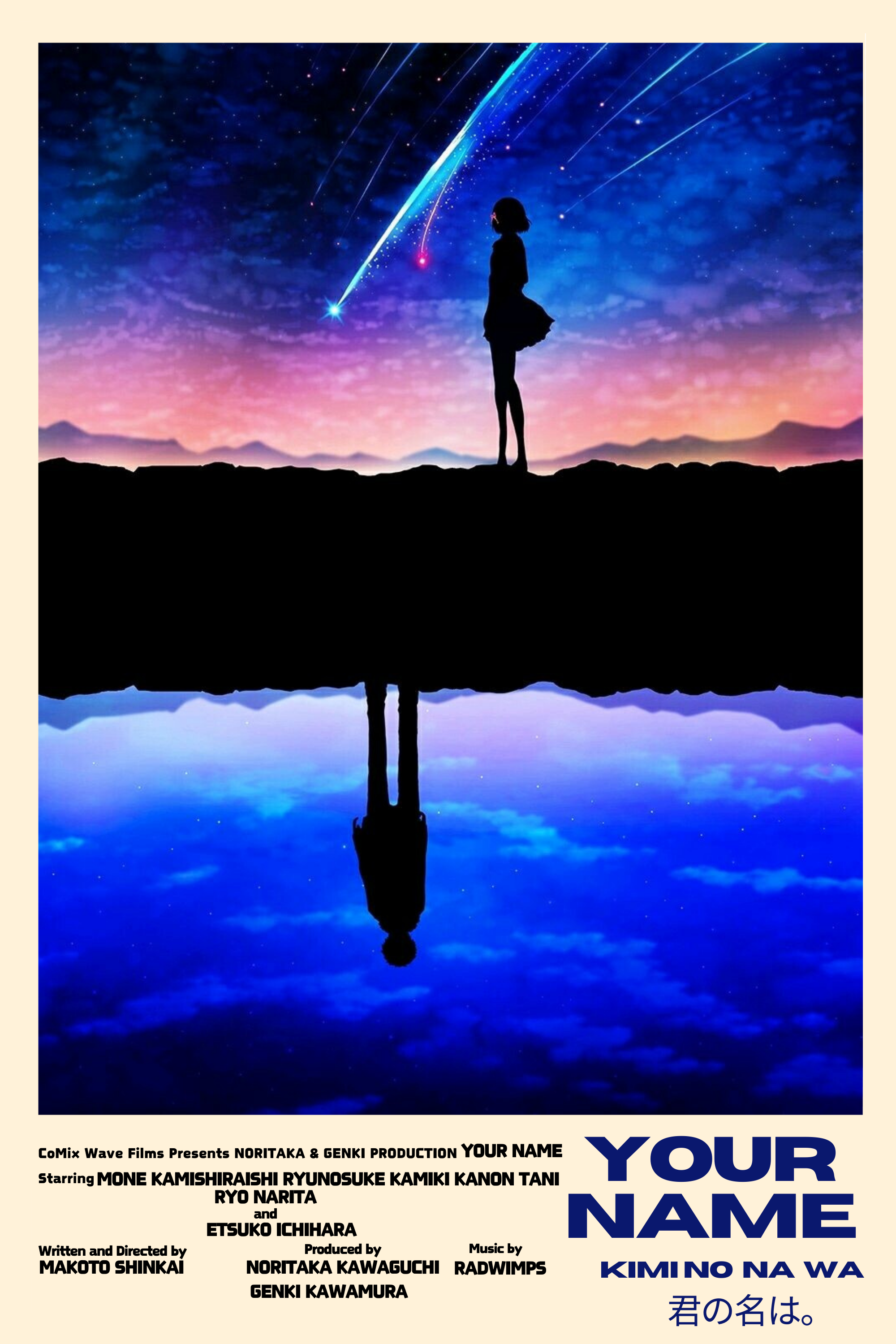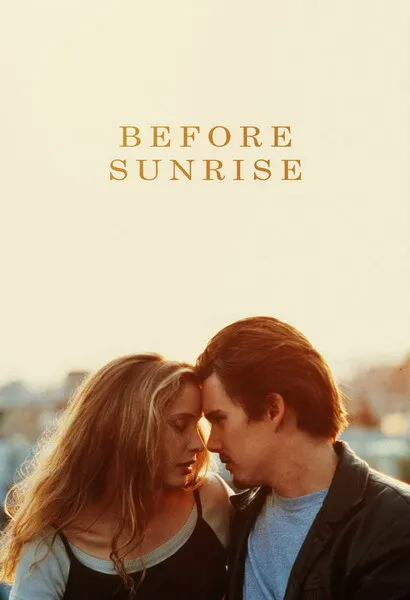Synopsis:
Your Name revolves around Mitsuha, a 17-year-old high school student, resides in the quaint rural town of Itomori with her grandmother and younger sister. Disenchanted with her surroundings and yearning for more, she daydreams of being a dashing Tokyo boy in her next life. However, as the age-old adage goes, “be careful what you wish for.” On the other hand, Taki, also 17, navigates the bustling streets of Tokyo. His days are a whirlwind of school, part-time shifts at an Italian restaurant, café rendezvous with friends, and aspirations of becoming an architect. While seemingly disparate lives, a peculiar phenomenon binds them: they sometimes wake up in each other’s bodies.
Review:
It’s a well-known movie trope — the body-switching concept — popularised by the 2003 Lindsay Lohan and Jamie Lee Curtis film, “Freaky Friday.” This film was itself a remake of the 1976 movie of the same name and, more recently, Netflix’s “Family Switch” (2023). While this trope often serves comedic purposes, it’s presented here in a fresh and original manner. With its myriad twists, turns, and a major revelation that might even surprise M. Night Shyamalan, this film distinguishes itself. Of course, it does have its comedic moments, given its core concept: imagine a 17-year-old boy and girl suddenly swapping bodies. What’s the first thing any teenager would do upon realising they’ve switched anatomies?
The film’s exquisite 2D animation demonstrates that traditional animation still holds its ground against contemporary methods. A particular scene stands out as mesmerising, marvellous, and utterly captivating — using any synonym that captures its beauty. The soundtrack complements the hand-drawn animation like stars enhancing a night sky. While the score punctuates moments effectively, an unexpected opening song briefly made me question if I was watching a film or a TV show. Yet, it’s the strategic use of silence that truly engrosses, drawing me closer to the screen, eagerly anticipating each unfolding moment. The film’s nuances, perhaps a seemingly inconsequential line or an oddly timed cutaway, often carry deeper significance, a point I’ll delve into later in the spoiler section. Dive into this cinematic experience, and join me in appreciating its intricate details.
Despite its brilliance, I do have a few — let’s call them minuscule — critiques. Given my admiration for this film, it’s challenging to highlight any shortcomings. That said, the film occasionally falters in conveying the passage of time. While initially perplexed by its timeline, I eventually acclimated. Additionally, the opening scenes might bewilder some viewers, taking nearly 30 minutes of screen time for characters to grasp their situation. Whether intentional or not, this approach can either be viewed as masterful or slightly perplexing.

In summary, this film stands out as a masterpiece. From its elegant animation and unique narrative to impeccable voice acting and a standout score, it encapsulates empathy. It emphasises not only the value of understanding another’s perspective but also the strength derived from communal support in navigating life’s challenges.
In conclusion, should you watch this film? Undoubtedly! Does it merit a place in IMDb’s top 100 based on user ratings? Absolutely! So, before another aimless TikTok scroll, pause. Step outside, take a deep breath,, re enter your living space — perhaps with a bowl of popcorn in hand and tissues at the ready. Stream “Your Name,” available on platforms like Amazon Prime for a nominal fee. Afterward, feel free to return to TikTok, but with a newfound appreciation. Type “Your Name” in the search bar, immerse yourself in related content, or better yet, share your reactions and reviews with the community.
Spoilers Ahead: You have been warned!
Reflecting on my earlier comment about “it’s the little things that make this movie special,” let me elucidate. In a particular scene, after Taki attempts to call Mitsuha but eventually hangs up, he mutters to himself, “I’ll tell her about the disastrous date the next time we switch.” Initially, you might assume he’s referencing his recent awkward outing with Ms. Miki Okudera. However, this line cleverly operates on multiple levels—it’s both a double entendre and foreshadowing. While Taki might be alluding to his date with Ms. Miki Okudera, he’s also hinting at the impending disaster: the comet that devastates Itomori and tragically claims Mitsuha’s life.
Another nuanced detail caught my eye during the film’s climactic sequence. As Mitsuha dashes downhill, desperately trying to recall Taki’s name while exclaiming, “Who? Who? Who are you? What’s your name?” she’s momentarily distracted by the sight of the comet splitting in two. This momentary lapse causes her to trip and tumble a considerable distance—astonishingly escaping severe injury. Intriguingly, just before she halts, the scene briefly shifts to a dragonfly taking flight from a leaf. I interpret this as an allusion to the butterfly effect, suggesting that minute actions can have substantial repercussions. Mitsuha’s subsequent discovery of Taki’s heartfelt message emboldens her, leading to a pivotal decision that alters the course of events, akin to her own ‘butterfly effect’.
Favourite Scene:
The twilight moment—where realms converge and boundaries blur—is unparalleled. Specifically, as Mitsuha discerns the onset of twilight, or “kataware-doki,” both characters suddenly perceive each other. Taki’s initial surprise transitions to relief. Amidst this pivotal moment, the absence of a soundtrack or ambient noises accentuates the silence. With deep love evident in his gaze, Taki softly utters her name.
“Mitsuha.”



